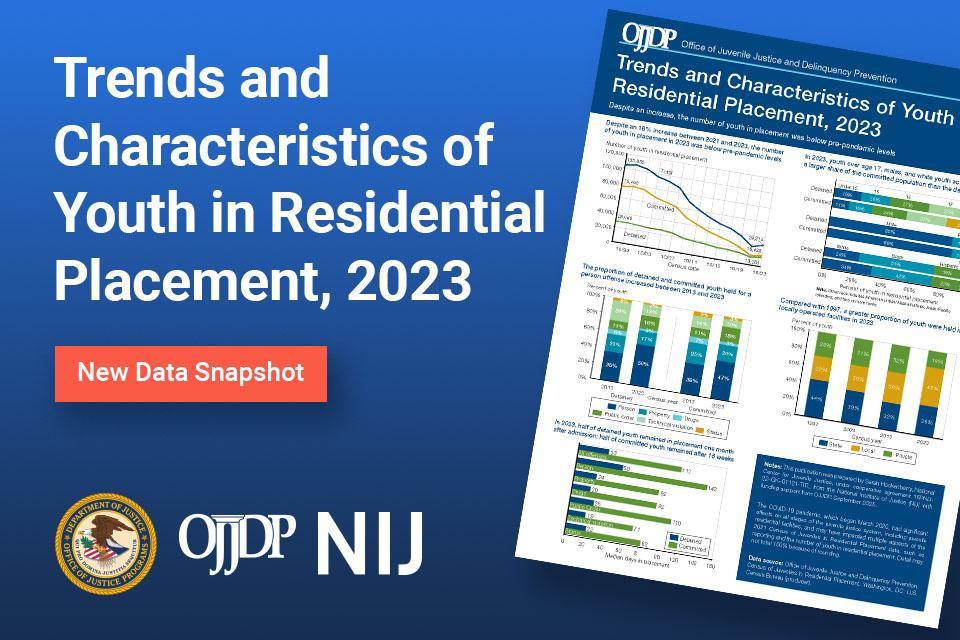OJJDP Announces New Funding Opportunities
The Office of Justice Programs' OJJDP has released new fiscal year 2025 funding opportunities.
Trends and Characteristics of Youth in Residential Placement, 2023
This data snapshot published by OJJDP illustrates findings from the 2023 Census of Juveniles in Residential Placement. The number of youth in residential placement facilities increased from 24,900 in 2021 to 29,300 in 2023.
Dating Violence Reported by High School Students, 2023
This data snapshot highlights data from the U.S. Centers for Disease Control and Prevention's Youth Risk Behavior Survey of dating violence victimization reported by high school students.
Read New Model Programs Guide Literature Reviews
OJJDP has released the following literature reviews: Status Offenses, Mental Health: How the Juvenile Justice System Addresses Youths' Mental Health, and Mental Health: The Influence of Mental Health on Juvenile Justice System Involvement.
Vision Statement
OJJDP envisions a nation where all children are free from crime and violence. Youth contact with the justice system should be rare, fair, and beneficial.
Mission Statement
OJJDP provides national leadership, coordination, and resources to prevent and respond to youth delinquency and victimization. The Office helps states, localities, and Tribes develop effective juvenile justice systems that create safer communities and empower youth to lead productive lives.






